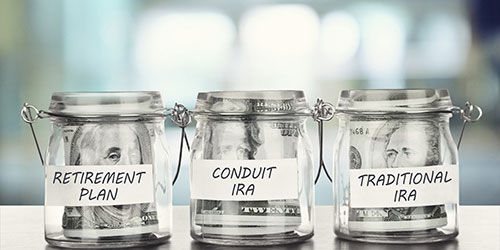Mortgage Refinance to Pay Off Debt
Jan 22, 2024 By Susan Kelly
Some homeowners choose to refinance their homes when it comes to paying off debt, such as credit card obligations. They do this via a process known as cash-out refinance, which entails obtaining a mortgage for a greater amount than they already owe on the property, taking the difference in cash, and using it to pay off high-interest debt.
Instead of making payments toward a revolving amount every month, you will be able to make fixed payments over a predetermined period of time if you consolidate your credit card debt by utilizing cash-out refinance. Mortgage interest rates are often far lower than interest rates charged by credit card companies.
Can You Refinance To Pay Off Debt?
You will need to be certain that you have sufficient equity in your mortgage before refinancing it to pay off debt. If, after the refinancing, you wind up owing more than 80 percent of the value of your property, you will be required to purchase mortgage insurance.
You will need to determine your loan-to-value ratio to ensure you do not owe more than 80 percent of the home's worth. Divide the remaining sum on your mortgage by an estimate of the worth of your house. It's that easy. If you wish to use part of the equity in your home to pay off debt, you will need to add the whole amount of the debt you are already paying down to the loan amount.
How Closing Costs Figure Into Your Decision
Before you refinance mortgage to pay off your debt, you also need to consider any closing expenses. When you refinance a mortgage, the lenders and service providers will charge you fees ranging from hundreds to thousands of dollars. That is money you might have put toward paying down your debt instead. Contrast the closure fees with the total interest you would save after consolidating your debt. You want the interest savings to be more than the expenditures associated with the closure. To put it another way, it could make sense to spend $3,000 on mortgage closing fees to save $12,000 in interest, but it would make sense to spend less money to save just $2,000.
Should You Consolidate Your Debts Through Refinancing?
To begin with, the most important: Before deciding to consolidate debt, you should devise a strategy to avoid accumulating new debt. The debt accrued on credit cards is considered unsecured, which indicates that any collateral does not support it. Even if you do not pay what you owe, credit card companies won't be able to seize your property as collateral for the debt. On the other hand, mortgage debt is backed by the property you own, which means that if you default on your payments, the lender has the legal right to seize and sell your property. This indicates that increasing the debt carried by your mortgage to pay off credit card debt raises the likelihood that you may lose your house.

When you do cash-out refinance, amount of debt you are paying off is added to your mortgage balance. Even if you refinance into a mortgage with a lower rate, your monthly housing payments may rise. This will depend on the interest rate and conditions for which you qualify.
Think about the term of your mortgage, which is the number of years that the loan will be outstanding. You should generally avoid increasing the length of your mortgage to 30 years if you have already paid off several years' worth of principal. Instead, consider cutting the duration down to either 25 or 20 years. While it may result in greater monthly payments, this technique will, in the long run, result in lower overall interest payments.
Do I Need To Refinance To Get Out Of Debt?

You won't be able to repair your financial situation by refinancing your debt to pay it off. There may be better options than this strategy when deciding how to get out from under financial obligations. This is because you need to pay off the debt that you already have truly. You are only rearranging it in other places. If you want to avoid sliding further into debt once again, you need to be certain that you will be able to make the new monthly payments on your mortgage and that you will be able to live within your means. Otherwise, you run the risk of significantly worsening your financial condition. When you refinance your debt to pay it off, you may improve your financial status if all of the following are true:
- Because of this, the mortgage rate that you are now paying on your mortgage might be lowered.
- You can negotiate a significant reduction in the interest rate attached to your refinancing loan.
- You will be on time with all of your payments.
- You'll avoid consumer debt in the future.





